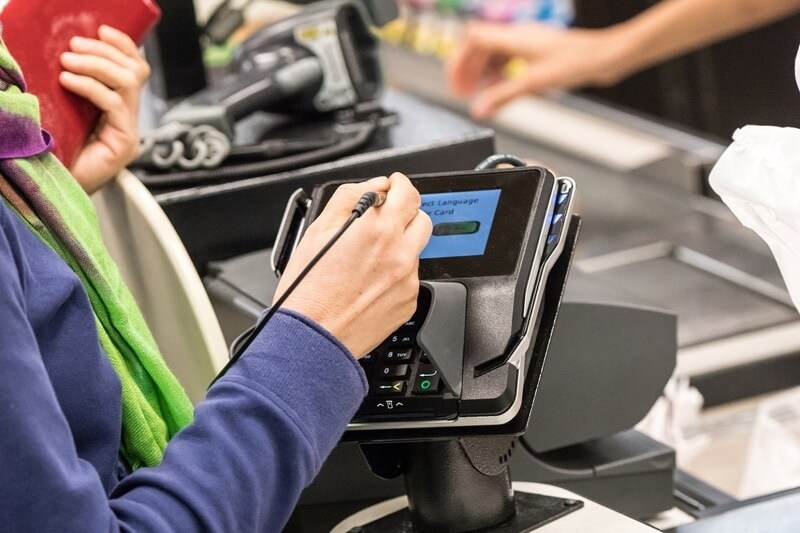Food waste is a serious issue that affects everyone, no matter where they are on the socio-economic spectrum. The Natural Resources Defense Council shares that 40% of all food in America goes uneaten, with 95% of the wasted food either sent to landfills or incinerators. Nashville Mayor Megan Barry has focused a large part of the energy of her administration on what she has titled the “Livable Nashville sustainability effort,” and more specifically the “Mayor’s Food Saver Challenge” in an effort to position Nashville as a leader in the movement to reduce food waste in the community.
Mayor Barry first reached out to the local restaurant community, asking chefs and restaurateurs to educate their employees and their customers about the problem and to develop strategies to reduce food waste. After launching the Food Saver Challenge program with restaurants, Mayor Barry then turned her sights to local retailers to take steps to reduce their food waste and maximize their donations of extra food to hunger-relief programs like Second Harvest Food Bank of Middle Tennessee. Kroger was the first retailer to sign up, as the Mayor’s Food Saver Challenge was right in line with the company’s “Zero Hunger|Zero Waste” plan announced in September.

Under this plan, Kroger stores have committed themselves to the audacious goal of ending hunger in the communities they serve and eliminating waste across the entire company by 2025. “Some people have called this a ‘moonshot’ initiative,” shares Melissa Eads, corporate affairs manager for Kroger. “One in eight Americans struggle with hunger. As one of the largest grocery retailers in the country, we are committed to reducing food going to waste and getting wholesome food to people who need it.”
Kroger’s plan is a multi-pronged approach to dealing with the issues of hunger and eliminating food waste as part of the solution for undernourished Americans. The company is creating a $10 million innovation fund through the Kroger Co. Foundation to support non-profits in their efforts to come up with new solutions in their local communities. As a corporation, Kroger is committed to accelerating their own food donations through partners like Second Harvest to be able to distribute an astounding 3 billion meals by 2025. They also aim to ensure that this extra donated food is part of balanced meals.

Kroger will also engage in advocating for public policy solutions that will help to ease hunger in our nation and will assist communities in efforts to divert food waste away from landfills through donations and composting programs. Kroger has identified Zero Waste goals they will achieve by 2020, followed by eliminating food waste across the company by 2025.
Melissa is quick to point out that Kroger is not the only retailer working to end hunger and eliminate waste, but they were the first to sign up for the Mayor’s Food Saver Challenge. “We have been addressing our food waste and partnering with groups like Second Harvest of Middle Tennessee for a long time. The challenge is for us to do even more, and our local customers can really help out with that.”
Kroger and Second Harvest are joining together for their annual “Can Hunger” program, and Nashvillians can help fight local hunger by donating at checkout at any Middle Tennessee area Kroger store through November 25. One hundred percent of the funds collected will go directly to Second Harvest Food Bank, and many of your Nashville neighbors will benefit from this initiative.
For example, Allison, 8, and her brother Kevin, both benefit from Second Harvest’s School Food Pantry Program at McMurray Middle School in Nashville. The food they receive through the school-based pantry gives them the nutrition they need to learn and grow. Even at her young age, Allison knows that it’s important for boys and girls like her and Kevin to eat fruits and vegetables, “so they can get stronger, be very healthy and not get sick,” she says. And their mom Maria says, “It gives us food to survive.”
Second Harvest also shares the story of Kayla, a mom who is thankful there is a place she can go to help put food on the table for her little girl. They live in a rural community where the closest grocery store is 17 miles away, and Kayla can’t afford to make the drive very often. The food they receive through Second Harvest’s Mobile Pantry at Midland Baptist Church in Bell Buckle provides them with the healthy options Kayla can rarely afford with her limited income. “Thank you,” she says. “Every little bit counts.”

Then there’s the story of more than 60 children including Omari, Tatiyanna and Brylea, who participate in Second Harvest’s BackPack Program at Bordeaux Elementary. “It gives them the opportunity to have something to take home and have on the weekends when they may not have food in the house,” says Joshua Jacobs, Director of Family Resources at the school. Because nearly every child at the school comes from a low-income household, this program is a real help. “The BackPack Program and Second Harvest are giving these kids the resources they need to be successful,” he says.
And everyone can play a part in that success thanks to the Zero Hunger|Zero Waste initiative, including you!
If you want to learn more about Kroger’s efforts to eliminate hunger and food waste in their local markets, visit their Zero Hunger|Zero Waste web page. If you want to help out more directly, visit your local Kroger store before November 25 and make a donation when you check out. You’ll be making an important contribution to your community.
This article is sponsored by Kroger.



















